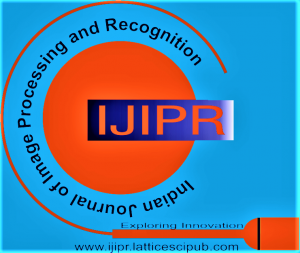![]()
Heritage Identification of Monuments using Deep Learning Techniques
Sowjanya Jindam1, Jaimini Keerthan Mannem2, Meena Nenavath3, Vineela Munigala4
1Sowjanya Jindam, Assistant Professor, Department of Information Technology, Maturi Venkata Subba Rao (MVSR) Engineering College, Osmania University, Hyderabad (Telangana), India.
2Jaimini Keerthan Mannem, Student, Department of Information Technology, Maturi Venkata Subba Rao (MVSR) Engineering College, Osmania University, Hyderabad (Telangana), India.
3Meena Nenavath, Student, Department of Information Technology, Maturi Venkata Subba Rao (MVSR) Engineering College, Osmania University, Hyderabad (Telangana), India.
4Vineela Munigala, Student, Department of Information Technology, Maturi Venkata Subba Rao (MVSR) Engineering College, Osmania University, Hyderabad (Telangana), India.
Manuscript received on 02 May 2023 | Revised Manuscript received on 12 June 2023 | Manuscript Accepted on 15 June 2023 | Manuscript published on 30 June 2023 | PP: 1-7 | Volume-3 Issue-4, June 2023 | Retrieval Number: 100.1/ijipr.D1022063423 | DOI: 10.54105/ijipr.D1022.063423
Open Access | Editorial and Publishing Policies | Cite | Zenodo | Indexing and Abstracting
© The Authors. Published by Lattice Science Publication (LSP). This is an open access article under the CC-BY-NC-ND license (http://creativecommons.org/licenses/by-nc-nd/4.0/)
Abstract: India is a nation with a plethora of cultural landmarks, including notable architectural masterpieces, 37 of which are UNESCO World Heritage master pieces. We must protect cultural heritages because they bind successive generations together over time. Architectural Designers, researchers, and travellers, etc. visit numerous historical locations, where it is frequently challenging for them to recognise and learn more about the historical significance of the monument in which they are interested. Due to the size and dependability of the information, the work of archiving, recording, and sharing the knowledge of these cultural assets is difficult. Modern machine learning and deep learning algorithms, as well as high processing computational resources, offer practical answers. The classification ofMonument satellite images or photographs can be atomized by utilising the Convoluted Neural Network techniques. During our project implementation, monuments images dataset was created with the help of google earth images. We have applied various pre-processing techniques and from pre-processed images we extracted features using feature extraction techniques such as Local Binary Patterns(LBP), Mean Standard Deviation(MSD). A model was developed using deep learning algorithms such as the Convoluted neural network(CNN). The results of our project are discussed in this paper. Initially we upload the monument satellite image, then the system recognizes the monument first then predicts whether the monument is heritage or not and gives the accuracy value as well as displays the monument image along with information of the monument.
Keywords: Convolutional Neural Networks (CNN), Heritage Identification, Image Classification, Local Binary Pattern (LBP), Mean Standard Deviation (MSD), Monument Recognition.
Scope of the Article: Image Processing
